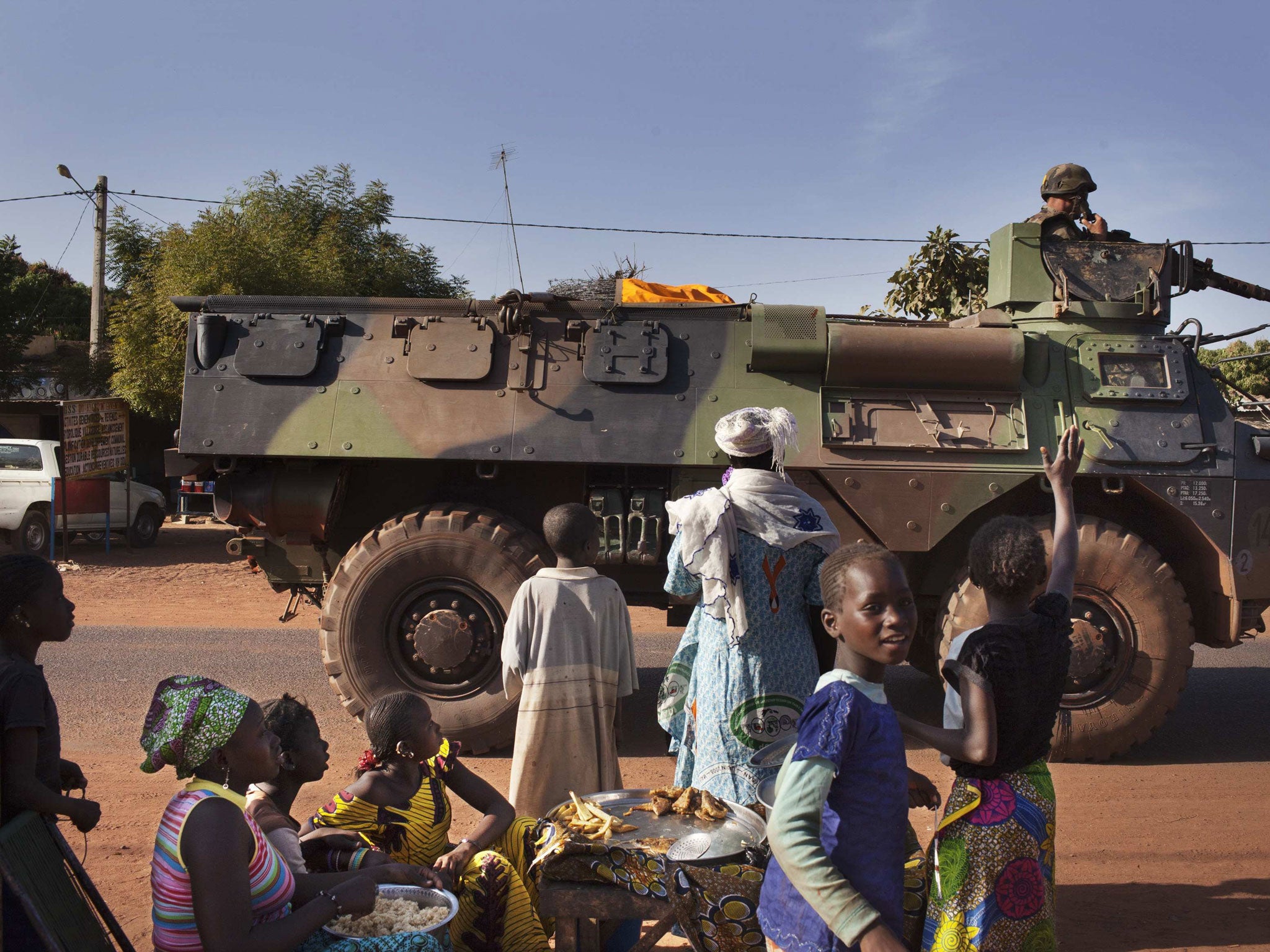‘I am not saying it’s not going to get hard, but I think we can cope’
Kim Sengupta joins the French and Malian forces at the strategic river crossing of Markala

The first burst of the firefight was intense as the Islamists opened up with their Kalashnikovs and charged across open ground with little cover. They faltered when they saw their comrades cut down and fear turned to a general retreat.
To the French marine corporal who took part in the skirmish near the town of Markala, the enemy had stood and fought, but only up to a point. They will provide challenges, but their threat, he held, should not be overstated.
“I have been in two tours of Afghanistan and it was a lot tougher there,” said the corpora. “We keep on hearing the rebels are well armed and well trained. That may be the case compared to the Mali [government] forces, but we should be able to handle them.
“I am not saying it’s not going to get hard here as well, but I think we can cope with what we have to face. We have been based in Chad, so we know this region. It will be more desert and sand further north, we’ll have to see what we find.”
His unit has been flown in as part of a 1,700 strong French force in Mali getting enmeshed deeper by the day in the West’s latest frontline against jihadists – a conflict which is spilling across borders, with dramatic and horrific effect in neighbouring Algeria.
Markala, a river crossing considered to be of strategic value, is a mustering point for French and Malian forces. Strike forces have begun to spread out from the town, roaring past lamp posts tied with French flags, to fend off attempted infiltration and then pursuing the fleeing rebels.
The Malian soldiers at the base say they are comforted by the presence of potent Western firepower and rue the fact that they themselves lack so much. “When I see the equipment the French have and hear about how much training they get, I realise why we have had problems” said Sergeant Amadu Diame. “The people we have been fighting have better guns, they have RPGs [rocket propelled grenades] and missiles. Our men can fight them, we have proved that in the past. I have fired at men shooting at me and killed them. Now that the French are here, we have fought beside them and our men have fought well.”
The financial audit of crime and terrorism indicate that the jihadist groups are certainly well funded. The rewards from kidnapping alone has brought al-Qa’ida in the Islamic Maghreb $100m or $150m over the past decade, according to different reports. The US Treasury has tracked the rise of ransom payments for hostages, some by Western government, from an average of $ 4.5m to $ 5.4m between 2010 and 2011.
The sheer wealth of the Islamists, along with the vast amount of weaponry which became available from Muammar Gaddafi’s arsenal after the fall of his regime, has supposedly made the Malian rebels formidably armed.
Yet the French commander in Markala, Lieutentant Colonel Frederick, who wished to be known publicly only by his first name, disclosed yesterday that his troops have yet to face missiles, or even IEDs (improvised explosive devices) which makes the Taliban such lethal opponents in Afghanistan. “I have taken part in a lot of operations in Africa, I know what to expect,” he said.
His Malian counterpart also insisted that then fearsome reputation the Islamists had built up did not guarantee them victory even if there was no Western intervention.
“It is well known that they gained control of Diabaly [a town which fell to the rebels after French air strikes began] because they attacked in such large numbers” said Colonel Cheick Amala Sidibe. “We did not have enough forces there to hold it, so we made a tactical withdrawal. Of course the arrival of the French have been very important, but I don’t accept that without it the rebels would have taken over the rest of the country. The people would have risen against them, in Diabaly they were calling ‘give us guns, we’ll defend ourselves’. They could not have beaten this.”
“The people” in Markala are not so sure that they would have prevailed against the gunmen and remain sceptical about the effectiveness of their armed forces. “Our army was too busy getting involved in politics and not doing their job,” said Mohammed Cisse, a retired trader. “The French have to stay here for a long time, otherwise there will be a massacre.”
Subscribe to Independent Premium to bookmark this article
Want to bookmark your favourite articles and stories to read or reference later? Start your Independent Premium subscription today.

Join our commenting forum
Join thought-provoking conversations, follow other Independent readers and see their replies